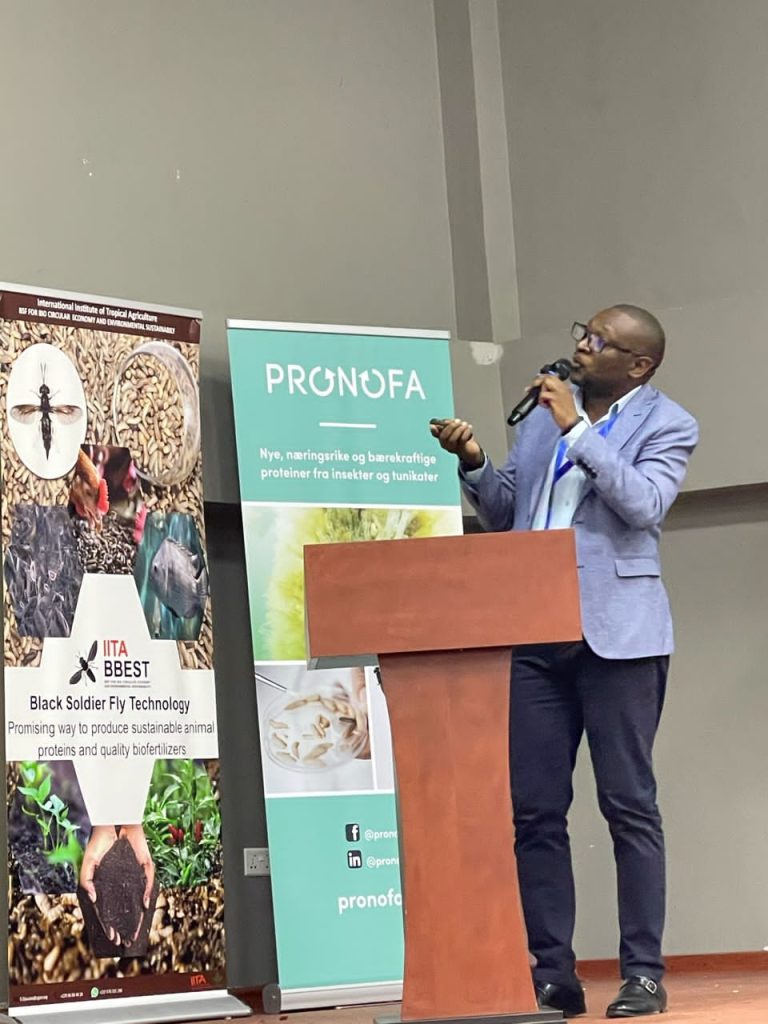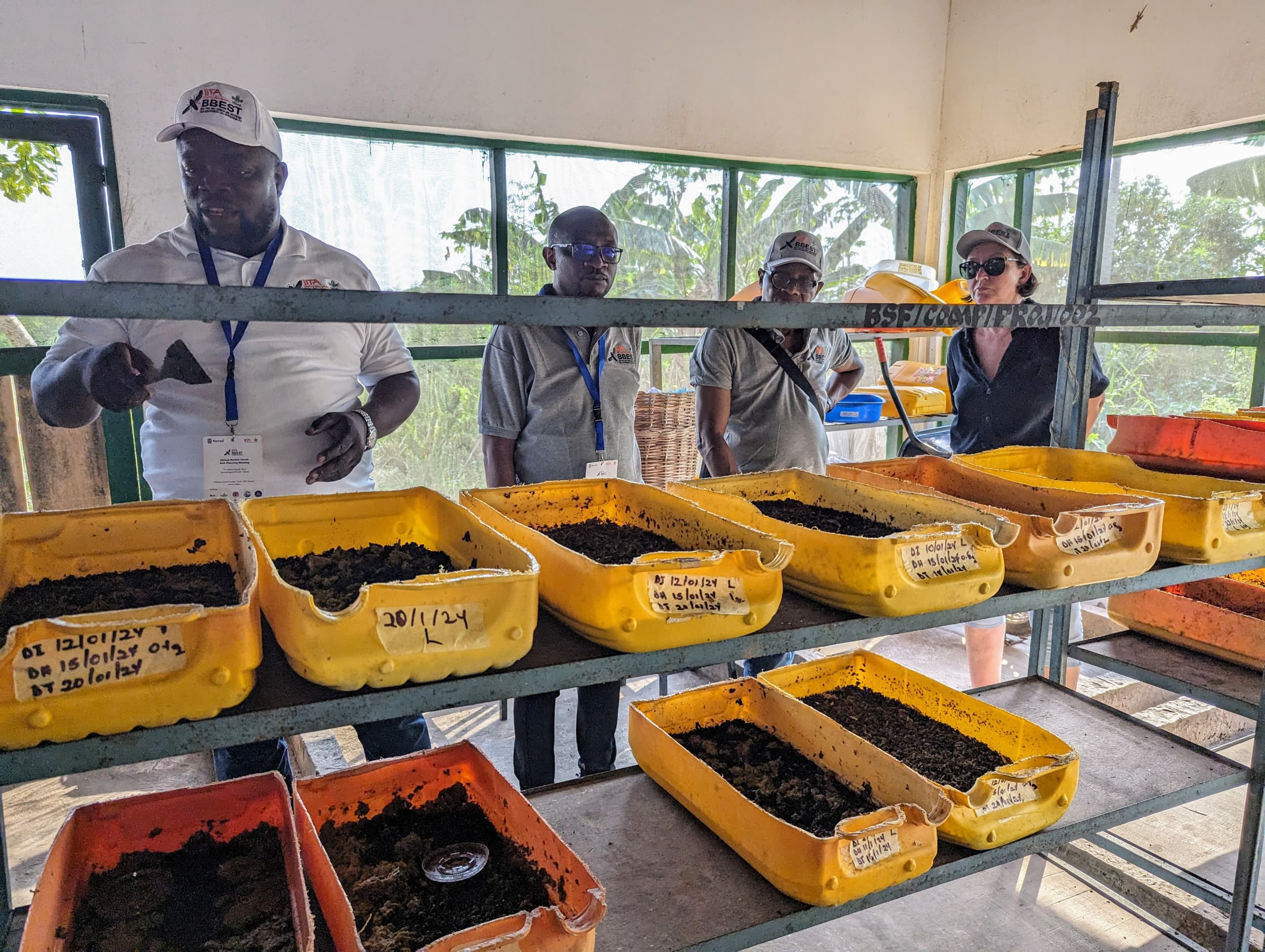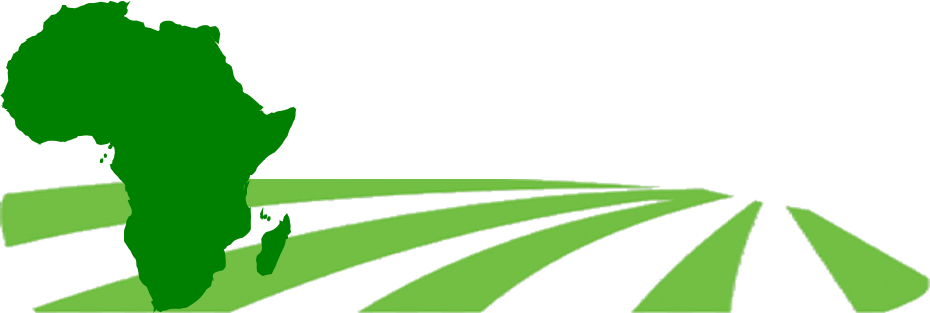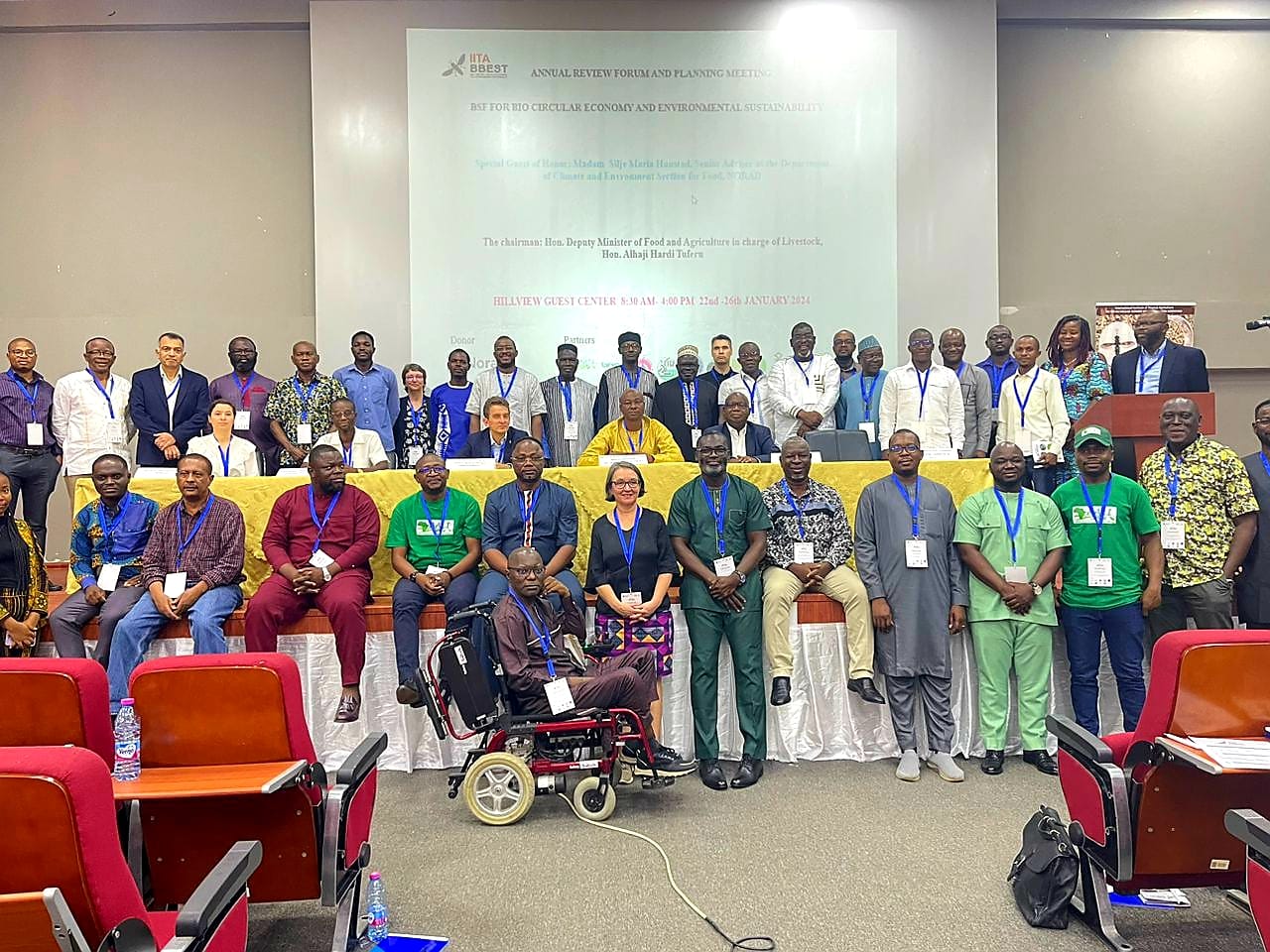AALI participated in the BBEST Project Annual Forum, organized in Accra from January 22 to 26, 2024. The event brought together partners from 5 countries—Mali, Niger, the Democratic Republic of the Congo (DRC), Ghana, and Norway—and provided an opportunity to discuss the advances and challenges facing this innovative agropastoral project in Africa.

The forum served as an ideal platform to reflect on the project’s achievements, share experiences, and promote collaboration between all stakeholders, both national and international. Presentations of progress reports by the various national teams, including those from the DRC, Ghana, Mali, and Niger, highlighted concrete achievements as well as the challenges still to be met in the field.
Dr. David Bugeme, Director of Country Advisory Services at the African Agricultural Leadership Institute (AALI), presented an overview of AALI’s activities at the forum, highlighting a study on the mapping of waste flows in and around the city of Bukavu. This study revealed opportunities for organic waste in the eastern DRC, where three decentralized units are already operational and others are under construction. This initiative is proving to be a practical response to effectively managing local organic waste in this city.
Despite its late integration into the project, AALI achieved the expected results in record time. This earned it the recognition and encouragement of all partners and forum participants. Seizing on this progress, the project management team recommended stakeholders in other countries follow this example of performance and commitment shown by the AALI team. The AALI team was represented by Dr. Chris Okafor, AALI Managing Director, Dr. David Bugeme, and Mr. Louange Ntugulo, project technician.
Another crucial aspect discussed at the forum was capacity building for young people and farmers, particularly market gardeners, in bio-waste recycling using the black soldier fly (BSF). This innovative technology aims, on the one hand, to use BSF to transform bio-waste into organic fertilizer to improve productivity in market gardening and, on the other hand, to use BSF larvae in animal feed, particularly for pigs, fish, and poultry.
This initiative, financed by the Norwegian Agency for Development Cooperation (NORAD), demonstrates the need to consolidate public and private sector efforts to improve the living conditions of African populations through the agropastoral sector. BSF technology promotes sustainable development and economic growth while preserving natural resources and protecting the environment.
About the BBEST project
The Black Soldier Fly Project for Biological Circular Economy and Environmental Sustainability (BBEST) is a three-year initiative funded by the Norwegian Agency for Development Cooperation (NORAD). AALI works in collaboration with the International Institute of Tropical Agriculture (IITA).
It started in West Africa in January 2022, and in the DRC in January 2023, the project has the following objectives: (i) improve the livelihoods of small-scale producers of chicken, fish, pigs and vegetables and other value chain actors, and contribute to improving urban sanitation and mitigating climate change; (ii) understand current and future bio-waste flows to inform the design of a business model for sustainable bio-waste management, animal feed and organic fertilizer production ; (iii) establish value chains for chicken, fish and pigs feeds as well as organic fertilizers; (iv) optimize the potential of bio-waste processing using the black soldier fly (BSF); and (v) build capacity and know-how on BSF technology among young agri-preneurs and other stakeholders.


